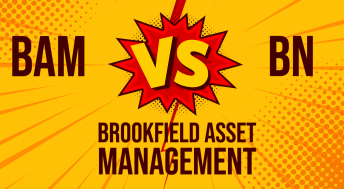One of the great issues amongst Canadians that is debated from the local Tim Horton’s in B.C. to the 5 AM hockey practice in P.E.I. is that of housing and whether or not a house should be viewed as an investment. Proponents on both sides have defended their views armed with a multitude of statistics and scenarios with neither side relenting. The opposing sides, amid the battle cries and spear throwing, have seemed to lose sight of the real issue: It is not whether housing should be viewed as an investment but rather if investments should be viewed as housing. All investors (not just Canadians) could benefit if we treated each investment more like a house.
Taking a Long-Term Point of View:
When buying a house, the high majority of prospective buyers have a long-term viewpoint. Most are looking out a minimum of 5 years for various reasons such as transaction costs and allowing time for the property to (hopefully) appreciate in value. Very few would expect to turn a house around in a year and sell it at a gain, as it is simply not enough time. This is the exact same for stocks. Like houses, companies need to be given time to allow strategies to gain traction and your money needs time to compound and grow. Investors that expect to turn a profit year in and year out may need to adjust expectations. In both the housing market and equity markets, time is your friend.
Due Diligence:
During the home buying process a significant amount of due diligence is conducted. Buyers make sure that finances are in order, they research the city and neighborhood and even tour the house to make sure the plumbing works. While we wouldn’t expect every investor to phone up management and ask if the toilets are flushing properly at headquarters, a little due diligence can go a long way. Ensuring the proper allocation to a stock exists, an appropriate budget is set before investing, checking that the valuation makes sense and finally, examining the financial statements (the plumbing) can save a lot of headaches for investors down the road.
Holding on Through Downturns:
Sometimes the illiquidity of houses (as well as what a hassle moving can be) works to a homeowners benefit. If the economy was slowing down and housing prices were dropping, very few homeowners would think it is a good idea to sell immediately at whatever the going rate was and move back in with friends or family. Most would wait for the turmoil to pass and for things to improve, with the idea that the lower prices aren’t justified given the due diligence performed and long term focus of the homeowner. Things might be bad today but it will pick up again and the house will reflect that over time. Oddly enough, we do the exact opposite when it comes to investing. At the first sign of bad news we immediately move to sell the stock even though the problem has likely been priced in at the time of sale. To add to the problem, for those that were confident enough to hold on to the investment, they now have to stare at that red, unrealized loss day in and day out which only adds to the likelihood of getting fed up and selling over the short term.
Don’t Check Prices Daily:
When you get up every morning do you pick up your phone and check MLS to get an update on what your house might be valued at? If you don’t do it for potentially the biggest purchase you make, why do we do it for stocks? As alluded to in the paragraph above, the readily available pricing of stocks can sometimes be an investor’s worst enemy. It leads to a great deal of anxiety when prices decline and only adds to the problem of a short-term focus on portfolios. We ignore the day-to-day volatility in real estate, so why shouldn’t we for equities as well?
Understandably, there are other considerations that go into the decision to purchase a house versus a decision to purchase an investment or stock but it almost seems counterintuitive that we are most patient and calm with one of our largest assets (houses) and yet are willing to flee from more liquid investments that are likely to make up only a fraction of our total net worth (a single stock). If we all started viewing our next stock purchase like we would when buying a house, investors may soon find that they have more net worth to go around than ever before.




Comments
Login to post a comment.